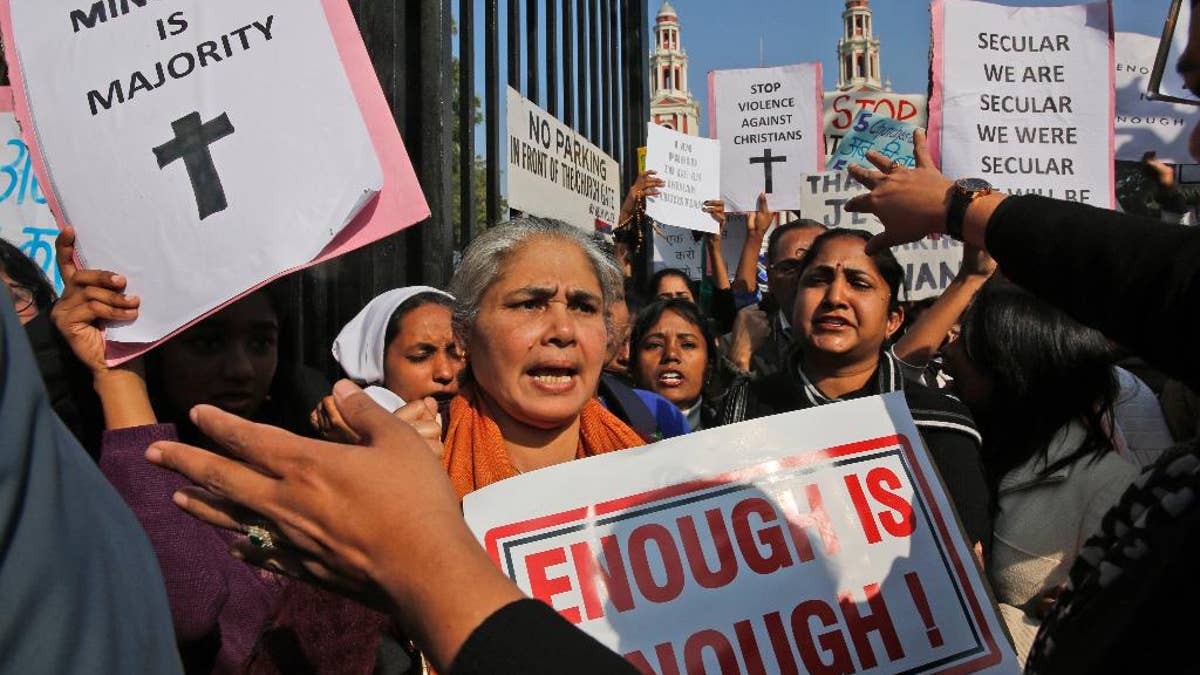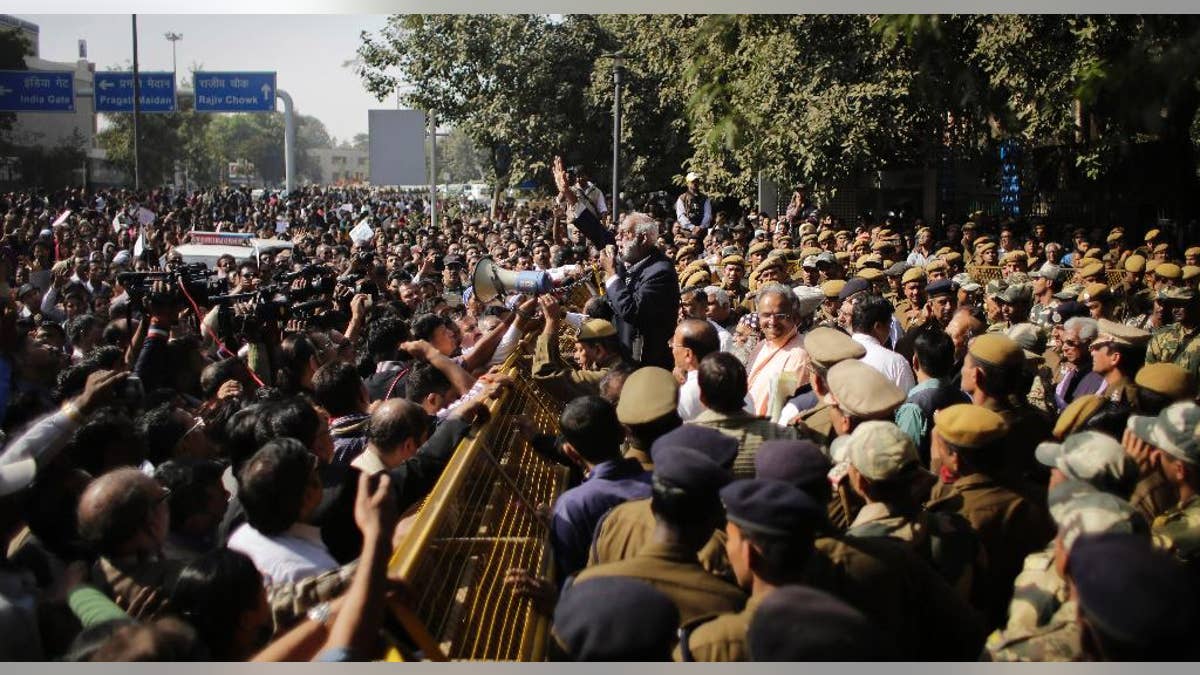
Indian Christians hold placards protesting against attacks on churches in the Indian capital as they assemble outside the Sacred Heart Church in New Delhi, India. (The Associated Press)
Parishoners of a Christian congregation in southern India made a grisly discovery recently – the body of their pastor hanging from a rope in his home, adjacent to the church.
Authorities ruled the death a suicide, prompting protests from a Christian community that has long felt what it feels is systematic persecution from Hindu extremists.
Congregants told local reporters Pastor Gideon Periyaswamy had endured constant harassment by some local Hindus, who they said had made it a point to try to torment the cleric every Sunday for the last six months. Last year, a group of extremists beat the pastor, a congregant told the Morning Star News.
The suspicious nature of the pastor’s death, and his struggles with his harassers, are refocusing attention on the growing persecution of Christians in the world's largest democracy.
India ranks 11th, just behind Iran and Yemen, this year on an annual list of the world’s 50 worst countries for persecution of Christians published by the Christian advocacy group Open Doors U.S.A. India had ranked 15 the previous year.

Indian Christians shout slogans protesting against attacks on churches in the Indian capital as they assemble outside the Sacred Heart Church in New Delhi, India. (Associated Press)
The Open Doors report estimated that in 2016, there was a weekly average of 10 instances in which a church was burned down or a cleric was assaulted in India. That's triple the rate of just two years ago, the report said.
“Religious nationalism is on the rise,” said Daniel Mark, chairman of the U.S. Commission on International Religious Freedom (USCIRF), a bipartisan independent federal group created by Congress in 1998. “Some state and local governments in India have tried to address attacks on [religious] minorities, but others turn a blind eye. That creates a climate of impunity that allows radicals to function more freely.”
USCIRF has designated India a “Tier 2” nation in its watch list of countries experiencing systematic, ongoing or egregious harassment or violence against religious groups. Others in the category include Cuba, Iraq and Afghanistan.
USCIRF has grown so concerned about religious persecution against Christians, Muslims and others in India, where Hindus are the majority, that they have repeatedly tried to visit the country, but have been denied visas. The Indian government also has denied visas to other religious freedom and human rights groups, accusing them of being “anti-Hindu,” USCIRF’s website says.
“It’s notably one of a few countries that we tried to visit but have not been able to,” Mark told Fox News. “There are some other countries that are notoriously bad, like Pakistan and Saudi Arabia, but they routinely grant us permission to visit even though they know there will be criticism from us that comes from those visits.”
In a 2017 report on India, USCIRF said “Religious tolerance and religious freedom conditions continued to deteriorate in India…Hindu nationalist groups and their sympathizers perpetrated numerous incidents of intimidation, harassment, and violence against religious minority communities.”
Christians comprise some 64 million of India’s 1.3 billion residents, according to Open Doors U.S.A.
Persecution of Christians, and religious persecution in general, has been on the rise around the world, experts say.
“Governments use the majority religion, and marginalize minority religions, to preserve power," said Kristin Wright, director of advocacy at Open Doors U.S.A.
The government of Indian Prime Minister Narendra Modi, who took power in 2014, is often blamed for the growing religious violence.
“The story of this pastor is not an isolated case,” Wright told Fox News. “It’s an ongoing tragedy what is happening in India. It’s a very diverse country, but we’re seeing new levels of violence against Christians, as well as Muslims and other minorities. It’s thrived under Modi, who has put forward a vision of the future of India as Hindu. He’s has a lot to do with the rising nationalism.”
Last year, the U.S.-based Chrisitian charity Compassion International, which served the poor in India for nearly 50 years, left the country, saying government officials there had been subjecting them to restrictions that made it difficult for them to do their work.
The Morning Star News quoted a friend of the pastor found dead a few days ago as saying that Periyaswamy had converted from Hinduism 25 years ago and had been pastor for more than 12 years. Witnesses said that Periyaswamy’s body showed signs of torture.
"The local Hindus were not happy with growing Christianity," said the friend, Pastor Azariah Reuben. "They had several times tried to stop the ministry."







































